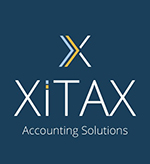Autumn Budget – Key Points
Income Tax & Capital Gains Tax
- From April 2018, the personal income tax allowance will increase from £11,500 to £11,850
- The higher rate tax threshold will increase from £45,000 to £46,350
- The £5,000 band of savings subject to the 0% starting rate is unchanged for 2018-19 and so is the £20,000 ISA limit.
- For 2018-19 the lifetime allowance for pension savings will increase to £1,030,000
- The abolition of Class 2 NIC has been deferred until 6 April 2019
- There is no increase to the main rate of class 4 national insurance contributions paid by the self-employed
- No changes to dividend tax rates
- No further reduction in dividend allowance (dividend allowance for tax year 2018/19 £2,000)
- The introduction of the proposed 30-day window for paying tax on gains from a disposal of residential property is to be deferred until April 2020
Off-payroll working in the private sector
The off-payroll working rules, usually referred to as IR35, applying to engagements in the public sector were radically reformed in April 2017. The Government claims that compliance in the public sector is much improved as a result and would now like to extend the reforms to the private sector. A period of consultation is promised before any reforms are introduced.
Income Tax: Armed forces personnel
Certain allowances paid to armed forces personnel for renting or maintaining property in the UK private sector will be made exempt from income tax and NICs.
Stamp Duty Land Tax: First-time buyers
From 22 November 2017, first-time buyers paying £300,000 or less will pay no SDLT and on properties costing between £300,000 and £500,000, SDLT will be charged at 5% on the excess over £300,000. SDLT on properties costing in excess of £500,000 will be charged at the normal rates.
Corporation Tax: Indexation allowance
Indexation allowance will be frozen on 1 January 2018 so there is no relief for inflation gains accruing after that date.
Non-residents’ property income and gains
From April 2020, income from UK property received by non-resident companies will be chargeable to corporation tax rather than income tax and their gains from disposals of UK property will be chargeable to corporation tax rather than capital gains tax.
Value Added Tax: Registration threshold
The current level of £85,000 will remain in place for two years from April 2018 while government consults on the design of the threshold.
Tax Evasion
A number of measures or intended measures have been announced:
- The Government will publish a consultation response on the proposed requirement for designers of certain offshore structures to provide HMRC with details of the structures and the clients using them.
- Government will consult in Spring 2018 on proposals to extend the assessing time limit to 12 years for cases of offshore tax non-compliance without first having to establish the non-compliance is deliberate.
- Following a consultation process, changes are proposed to tackle VAT fraud in construction industry labour supply chains. These changes are intended to take effect from 1 October 2019.
Tax Avoidance
A number of measures are announced. Most are targeted at particular abuses or perceived abuses but perhaps two are of more general interest. First is the announcement of a consultation to consider ways of preventing traders and professionals avoiding tax by fragmenting income between unrelated entities. Second is the removal, with effect from 22 November 2017, of the 6-year time limit within which companies must adjust losses arising from depreciatory transactions.
Tax administration and compliance
Changes will take effect on 6 April 2019 enabling the recovery of Self-assessment debts through PAYE codes and a new system of late submission penalties and interest is proposed following consultation.
